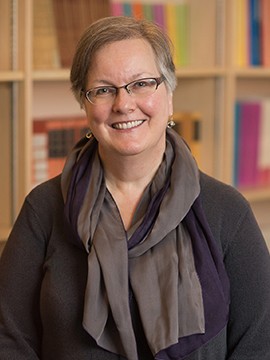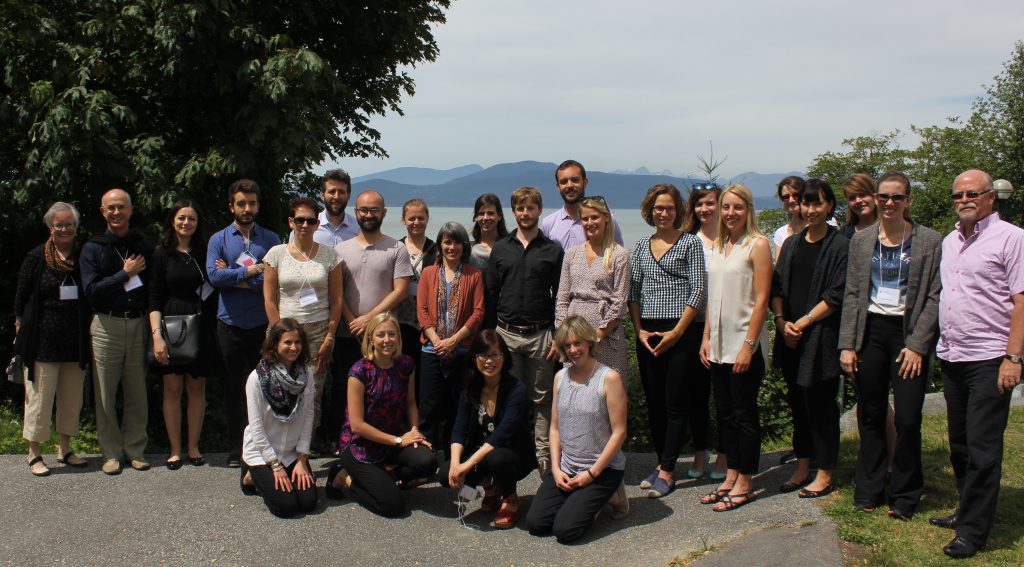

“If we, in the west, have been persuaded to dread, and even despise, old age, then how might we be persuaded not to?” – Judy Segal, English professor
Populations around the world are living longer, prompting questions that are equally urgent for sociologists, economists and rhetoricians as they are for medical practitioners. In a world where the elderly begin to outnumber the young, what assumptions around education, work and retirement need rethinking? How can governments ensure improvements in health care are distributed evenly? What does “aging successfully” mean – and who persuades us of what that looks like?
This summer, dozens of researchers from around the world gathered at UBC for the International Summer School on Aging (ISSA), a unique interdisciplinary programme which brings researchers from biomedical and policy fields together with those from humanities and social sciences to discuss the full spectrum of research issues in aging. Topics ranged from epigenetics and clinical studies of dementia to representations of old age in the media, to the creation of more “age-friendly” communities.
Anne Martin-Matthews (Sociology), who organized ISSA, and Judy Segal (English), who participated, are currently collaborating on a rhetorical analysis of aging to consider how old age is represented in the media as well as by health care providers and government agencies. In our Spotlight Q&A, they shared their research questions and explained why scientists and physicians benefit from humanities and social sciences research on aging.
What is the main question you seek to address about aging?


Judy Segal, Professor, department of English
JUDY SEGAL: So much of public discourse on aging has old age lodged in a narrow, often inequitable, and sometimes unforgiving, discourse of health and medicine. Both decline discourse and successful aging discourse take health itself as their primary reference point—and so we most regularly encounter warnings about the prevalence of dementia, the “grey tsunami,” and the high cost of health care for an aging population. It would seem, as age theorist Margaret Cruikshank noted critically, that “the business of being old is to be sick.”
Not surprisingly, many of us have come to dread old age. While no one would deny that it’s better to be healthy than not, our perceptions of old age are too much formed by standards of health and ability associated with youth. These are standards we may try to meet in early old age and simply can’t meet in deep old age. This is my question: “If we, in the west, have been persuaded to dread, and even despise, old age, then how might we be persuaded not to?” I investigate how old age might be framed differently, in public discourse and in public representations of old people, so that old age is understood as a stage in life, different from youth or middle age, but not implicitly to be dreaded.


Dr. Anne Martin-Matthews, Professor, department of sociology.
ANNE MARTIN-MATTHEWS: I am primarily interested in how individual’s experiences of aging – and, in particular, the dynamics of age-related transitions, such as widowhood, retirement, changes in health requiring ‘care’ – are shaped by social worlds. These social worlds include life course experiences (when and where people grow up and grow old), gender, ethnicity, education, and social and familial contexts, as well as attributes of the societies in which people live, in terms of resources, norms and values.
How do scientists and physicians benefit from humanities and social science research on aging?
JUDY SEGAL: Health humanities is a growing interdisciplinary field with contributions to make to understanding complex conditions, including those that aren’t strictly health/medical conditions but, in fact, existential ones. Humanities research will not solve medical problems—but it can give physicians and other health professionals greater insight into the dimensions of old age, and help them (and, through them, the rest of us) more fully to see old people as more than failing and expensive bodies. In the world in which we live, old age, for the luckiest of us, is inevitable. This being the case, we will all benefit from cultivating the most expansive, and the most generous, view of old people.
ANNE MARTIN-MATTHEWS: In my teaching to a broad diversity of students (not only in social sciences and humanities, but also in nursing, occupational therapy, kinesiology), I emphasize how societal, cultural and structural factors frame beliefs and behaviours, and decision-making, as individuals age. For example, most older people want to ‘age in place’ – living in their own homes, for as long as possible. Their ability to do that is influenced not only by their own health and home environment, but also by the availability and willingness of family and friends to provide support, by cultural norms and expectations involving care of older people, and by access to home-based care.
Across Canada, there is wide variation in the availability of home-based health and social care services, in their eligibility criteria, in their cost – how does this impact ‘aging in place’? My research has found that there is often a disconnect between the needs of older people, the characteristics of workers available to provide in-home care and the policies and practices of agencies. Are these issues private troubles to be worked out by individuals on their own, or are they public issues of concern to society in enabling older adults to live in their own homes for as long as possible? What are the implications of each? Those who deal with issues of aging (and that is everyone) benefit from an understanding of how aging and society intersect, and how each shapes the other.
_____
To learn more about the third edition of the International Summer School on Aging visit their website.


This summer, 20 doctoral and post-doctoral fellows and five faculty mentors from around the world joined 13 faculty members at UBC for the International Summer School on Aging.


